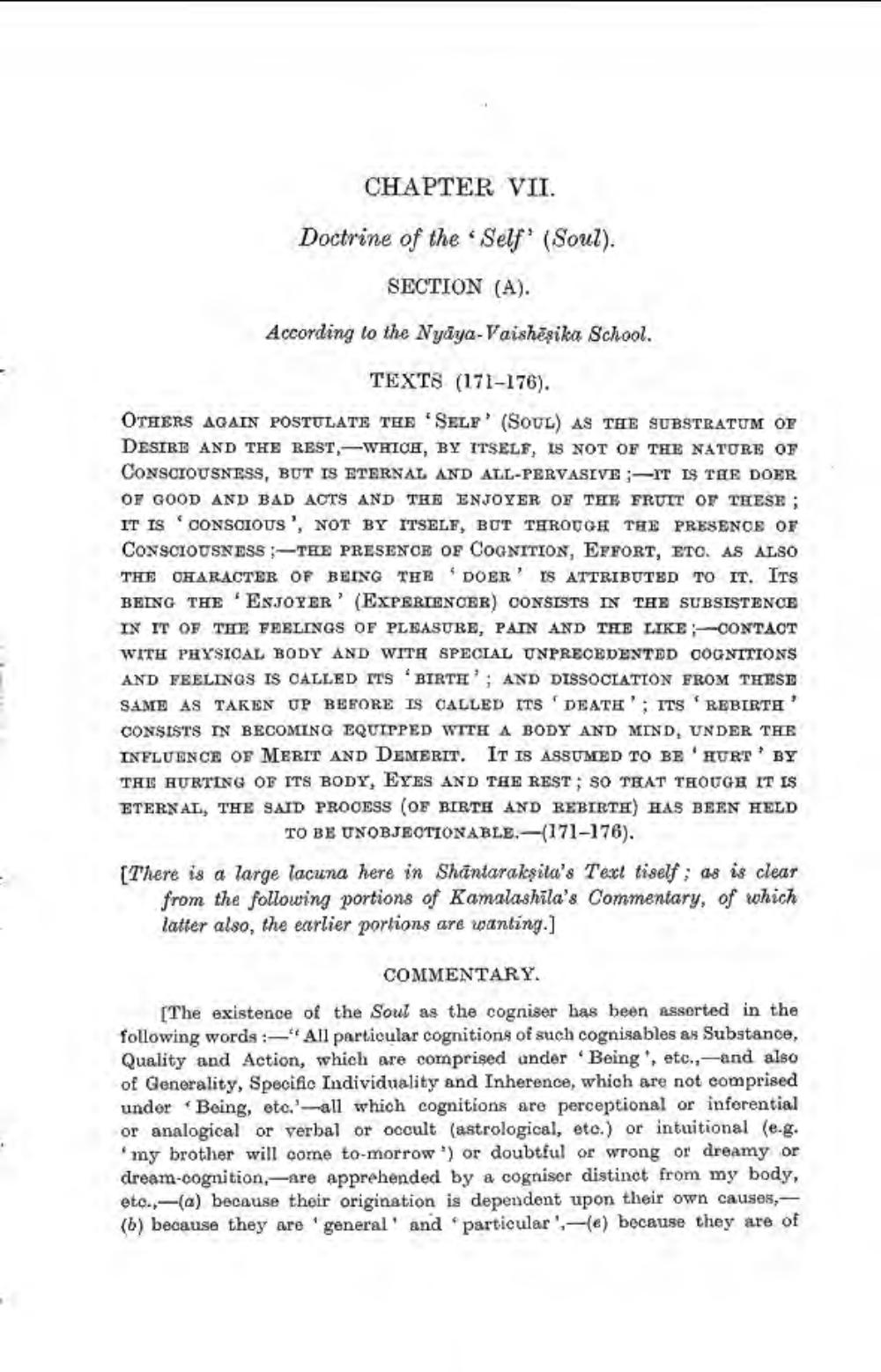________________
CHAPTER VII.
Doctrine of the Self' (Soul).
SECTION (A).
According to the Nyaya-Vaishēșika School.
TEXTS (171-176). OTHERS AGAIN POSTULATE THE 'SELF' (SOUL) AS THE SUBSTRATUM OF DESIRE AND THE REST, WHICH, BY ITSELF, IS NOT OF THE NATURE OF CONSCIOUSNESS, BUT IS ETERNAL AND ALL-PERVASIVE ;-IT IS THE DOER OF GOOD AND BAD ACTS AND THE ENJOYER OF THE FRUIT OF THESE ; IT IS CONSCIOUS', NOT BY ITSELF, BUT THROTGH THE PRESENCE OF COXSCIOUSNESS-THE PRESENCE OF COGNITION, EFFORT, ETC. AS ALSO THE CHARACTER OF BEING THE DOER' IS ATTRIBUTED TO IT. Its BEING THE 'ENJOYER' (EXPERIENCER) CONSISTS IN THE SUBSISTENCE IX IT OF THE FEELINGS OF PLEASURE, PAIN AND THE LIKE CONTACT WITH PHYSICAL BODY AND WITH SPECIAL UNPRECEDENTED COGNITIONS AND FEELINGS IS CALLED IT'S BIRTH'; AND DISSOCIATION FROM THESE SAME AS TAKEN UP BEFORE IS CALLED ITS 'DEATH'; ITS REBIRTH CONSISTS IN BECOMING EQUIPPED WITH A BODY AND MIND, UNDER THE INFLUENCE OF MERIT AND DEMERIT. IT IS ASSUMED TO BE 'HURT BY TAL HURTING OF ITS BODY, EYES AND THE REST, SO THAT THOUGH IT IS ETERNAL, THE SAID PROCESS (OF BIRTH AND REBIRTH) HAS BEEN HELD
TO BE UNOBJECTIONABLE. -(171-176).
[There is a large lacuna here in Shantarakṣita's Tect tiself; as is clear
from the following portions of Kamalashila's Commentary, of which latter also, the earlier portions are wanting.]
COMMENTARY
[The existence of the Soul as the cogniser has been asserted in the following words:"All particular cognitions of such cognisables as Substance, Quality and Action, which are comprised under "Being, etc.,—and also of Generality, Specific Individuality and Inherence, which are not comprised under Being, etc.'--all which cognitions are perceptional or inferential or analogical or verbal or occult (astrological, etc.) or intuitional (e.g. 'my brother will come to-morrow') or doubtful or wrong or dreamy or dream-cognition-are apprehended by a cogniser distinct from my body, eto., -(a) because their origination is dependent upon their own causes,(b) because they are general' and particular':-(e) because they are of




